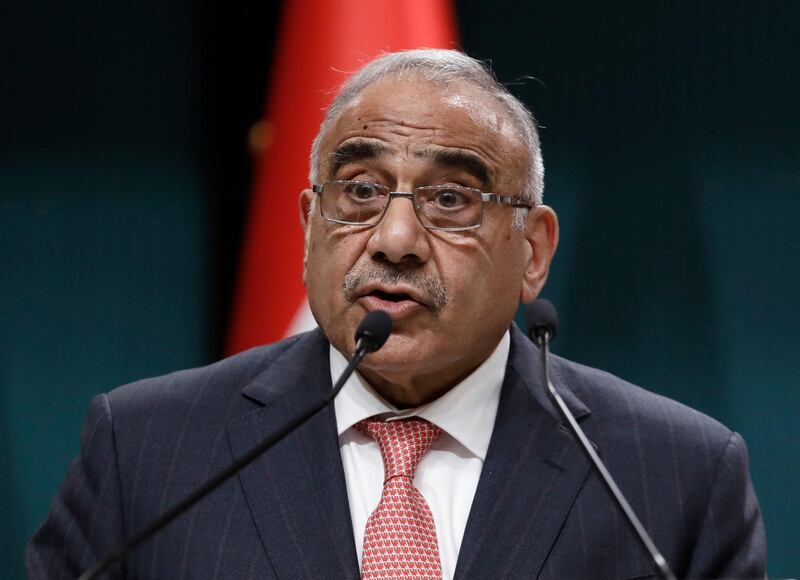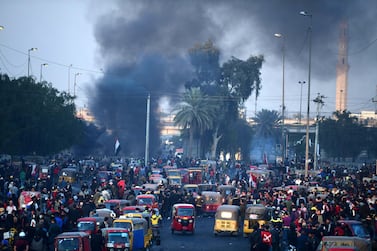Iraq’s departing Prime Minister Adel Abdul Mahdi on Tuesday condemned the multiple rocket attacks that landed near the American embassy in Baghdad, amid heightened US-Iran tensions.
On Monday night, three Katyusha rockets hit the heavily fortified Green Zone, which houses government buildings, foreign missions and US servicemen.
No casualties were caused, according to Iraqi officials.
The rockets were launched from the Zafaraniyah district outside Baghdad. Sirens were heard immediately at the rockets made impact.
“The targeting of the US embassy is a crime against diplomatic missions on Iraqi grounds,” Mr Abdul Mahdi told Ina, the Iraqi state news agency.
The Iraqi leader said he had ordered an investigation into the attack. The perpetrators of the attack have not been identified.
Iraqi forces have handled security in the capital since being given control of it more than 10 years ago.
Rocket attacks on the Green Zone are very common and have recently increased.
At least two attacks occurred earlier this month after Tehran responded to the US killing of Iranian general Qassem Suleimani and a high-ranking Iraqi militia leader, Abu Mahdi Al Muhandis, near Baghdad airport.
On the afternoon of January 8, two rockets landed in the Green Zone, hours after Iran launched more than dozens of missiles at two Iraqi military bases housing US troops.
Washington has blamed Iran-backed paramilitary groups for the attacks, but there has never been a claim of responsibility.
In late December, pro-Iran militia supporters demonstrated outside the American embassy in response to a deadly US airstrike that killed 25 members of Kataib Hezbollah.
The recent tit-for-tat attacks nearly brought Iraq to the brink of a proxy war.
Iraqi officials have repeatedly said they do not want to be caught in the middle of tensions between Tehran and Washington.
Mr Abdul Mahdi said in early January that his country rejects all violations against its sovereignty. He specifically pointed to the ballistic missiles that Iranian forces fired against US troops in Iraq and also America's violation of Iraq's airspace in the airstrike that killed General Suleimani.







